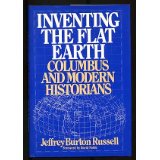What do I think of Joshua Moritz’s book published by Anselm Academic? Let’s plunge into the Deeper Waters and find out.
A reader of Deeper Waters recommended that I look into the work of Joshua Moritz and see if I’d like to interview him on my show. The book recommended was Science and Religion. I got in touch with Moritz who got in touch with his publishers and a copy was sent my way.
I read the book and I was in many ways, surprised. The book was extremely thorough. At times, you wouldn’t even know a Christian was behind it because very little place would be given to religion. It would be just looking at the science itself.
Moritz starts with the obvious place in a book like this, namely Galileo. The information in here is quite good as he brings out pieces of the account that I had not read elsewhere. He does rightly show that this was never science vs. religion. Everyone in the debate held the same view of religion and would believe in the inerrancy of Scripture. Everyone also believed that science told us truth about the world and that science and Scripture would not contradict.
Indeed, the big problem was that Galileo was speaking on areas where he was not authorized to speak and where he had even agreed to not speak. I ultimately view it as an ego conflict. It also didn’t help that he had a dialogue written depicting the pope as a simpleton. Not only that, Galileo’s case was ultimately right, but he did not at the time have the evidence for it and the church was ready to change its interpretation of Scripture if it had to, but it needed really good grounds to do that. Galileo did not have that yet.
From there, we move on to evolution and especially a case like the Scopes trial. Again, the narrative is hardly the same as the real story. Bryan who was arguing against evolution supposedly was hardly a fundamentalist and Darrow was hardly the brilliant attorney on the other side. He had his own skeletons in his closet. As for evolution itself, a number of devout Christians at the start had no problem with it. Even Warfield, known as Mr. Inerrancy, did not have a problem with it.
From there, we get a look at the history of the topic and look at questions like the Big Bang Theory and other such subjects. Sometimes the work can get a bit technical, but for the most part it’s easy to go through. We also look at some questions like the age of the Earth.
There is also talk about the limits of science. Are there some things that science cannot do? Is it possible to have science without faith? Is it possible to have faith without science? Could it actually be that both need each other?
He also goes to places many don’t go to. Miracles are somewhat understandable, but there is a different take given on them, though I do not wish to spoil for the reader. He also looks at the problem of evil, including animal suffering, and seeing if this is compatible with religion, and finally ends with a chapter more on eschatology and if there is any redemption for our world for if we all we have is science, the story does not end well.
Moritz’s book is a good and fascinating read and worthwhile for anyone interested in this subject. I highly recommend it.
In Christ,
Nick Peters
